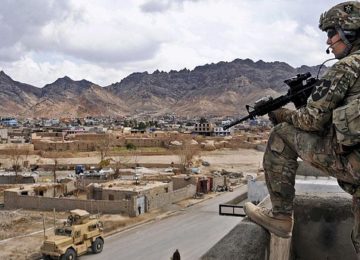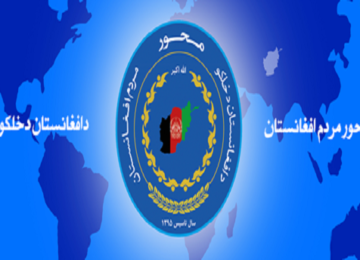March 26, 2019.
In a typical response, Muslims, in Pakistan and in other parts of the world, have been enamoured by the ‘Hijab’ (headgear), the New Zealand Prime Minister, Jacinda Ardern, had been wearing during the time she mourned one of the deadliest attack in her country. The message of empathy, compassion and most of all refusing the killer the notoriety he desired to use as a vehicle to spread more hatred, has been lost on the ritual focused minds.
Not to lose this moment of awakening—-in their own right—-leading religious persons posted messages on social media, buttressed with verses from Quran, to support the idea that the real identity of a woman in Islam flows from her attire of which Hijab happens to be the crown of all clothing.
Covering one’s head could be one of the religious binding for Muslim women, for which they had also suffered in West, but this was no occasion to bring it to the spotlight.
Just as the Australian born killer was finished with martyring 50 Muslims in two mosques in Christchurch, a young man in Pakistan at the Government Sadiq Egerton College in Bahawalpur, stabbed Associate Professor Khalid Hameed to death. The 5th semester, Bachelors of Science, student, Khateeb Hussain was not happy with Hameed’s concept of arranging a mixed gathering for a welcome party at the college. This ‘Un Islamic,’ gesture triggered the ‘hatred,’ beyond which all is permissible. Killing is just one of the possibilities.
The keyword here is “hate” – whether it ravages inside Tarrant or Hussain.
What are Muslims doing to tame this animal of hate? So far, our response to Islamophobia and to the perception of Islam being a conservative religion has only been to modernise our ‘lifestyle’, like Saudi Arabia has done lately.
Pakistan tried its hand on this issue through what Musharraf called ‘Enlightened Moderation,’ however, we have not moved any farther from there. Within the silos of moderate, conservative, educated or whatever Muslims and Pakistanis we happen to be, there is a subculture of hate known politely as ‘us versus others’ that we connect to when responding to crises or to things that do not suit our instincts.
We have had many Christchurches of our own in Pakistan. All ended with condemnation from the government. Others, like the Sahiwal incident – in which three young children were put through the horrific ordeal of seeing their parents and elder sister shot and killed from short range – had been thrown on the mercy of a slow moving and elite captured judicial process.
Other than putting behind bars a few police officers – just like a few of them had been incarcerated whenever such incidents happened implicating the state – we have hardly heard anything beyond. Though coercion is a legitimate right of the state, it does not absolve it from undoing the wrong through introducing reforms to improve the system.
Have we seen any policy initiative to reform the police culture from Prime Minister of Pakistan Imran Khan? Of all the organizations, police in Pakistan is source of both hate and violence. The former breeds the later.
However, no incident involving police brutality has ever been atrocious enough to unnerve our leaders to put their foot down on the culture of impunity in police. Even Imran Khan – the so-called leader of change – has given up on police reform saying his parliamentarians cannot do politics without the police. He has silenced the voices he had been raising atop the container while in opposition, against false FIRs, physical and mental torture, encounter killing, black mailing and politicisation of police.
Like love, hate is contagious.
Until recently, Khadim Hussain Rizvi and his brigade were spewing hatred against the non-conformists and contributed in making the previous government weak enough to crumble under the weight of its own follies sooner than later.
What did the state do to mend the cleavage Rizvi had successfully attempted to create in society? Other than sending him to jail, there was no effort to replace his narrative of hate with the narrative of co-existence. This was completely opposite to what the Prime Minister of New Zealand has done.
She replaced the narrative of hate by dismissing the killer as a ‘nobody’ and embracing the victims as part of her country that rests on inclusivity. Unlike us, who ventured to distribute money among Rizvi’s acolytes and assisted him to bring to standstill Rawalpindi for three weeks, Jacinda Arden took away the power of recognition these mass-murders seek to become celebrities and inspirational icons for copycat terrorist attacks.
At once, Jacinda Ardern defeated the whole purpose of the terrorist attack that sought to divide New Zealand on the basis of religious differences.
From 9/11 and 7/7 to attacks in France, each elicited from their individual leaders the response of pulling Europe in a mass that could not be shattered in the face of rising Islamic extremism.
Arden refused to mention religion as a divider, where, in fact, her entire narrative was based on the theory of togetherness couched in the appreciation for Islam. Unfortunately in Pakistan, despite being ideologically an Islamic state, religion has become a source of division rather than cohesion.
It will only take a rising beyond rituals to fully grasp the meaning of being human.
The Sahiwal incident and the murder of Professor Khalid Hameed suggest how our leaders have failed in recognizing the creeping menace of intolerance and hate in Pakistan.
So far we have been trying to heal ourselves by becoming more “nuclear and weaponized”.
We may have averted a nuclear war with India, but we have yet to defeat the culture of hatred by encouraging dialogue on issues where differences exist. The very purpose of dialogue is to build a shared understanding towards problems and disagreements. We have ceased to make efforts to understand others; the least we are doing is criticising or protecting our own bunkers.








